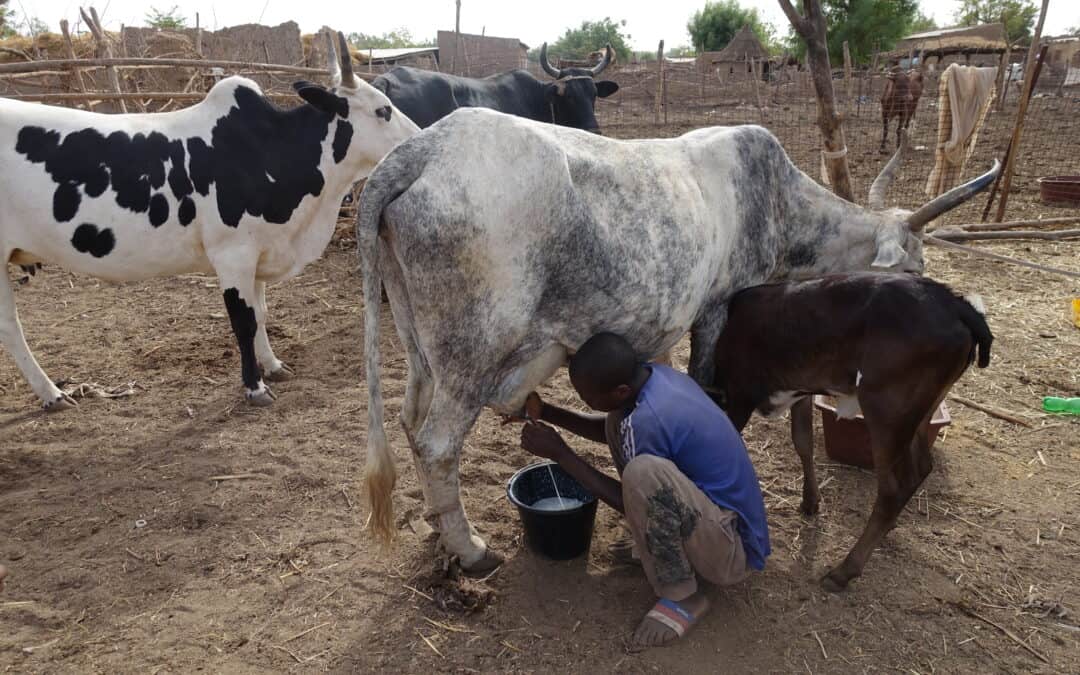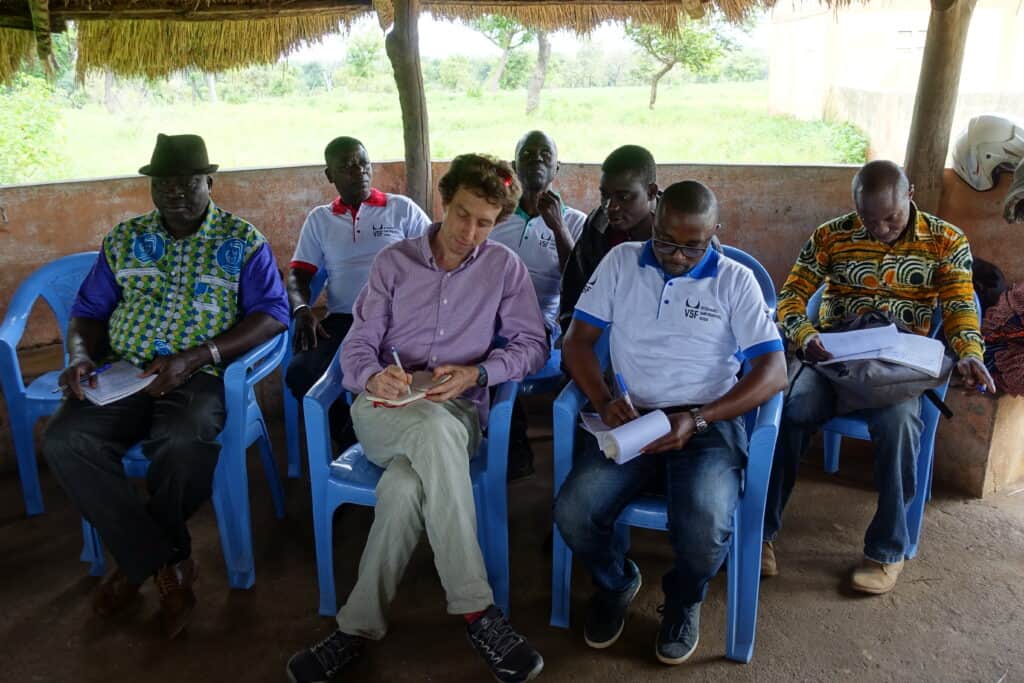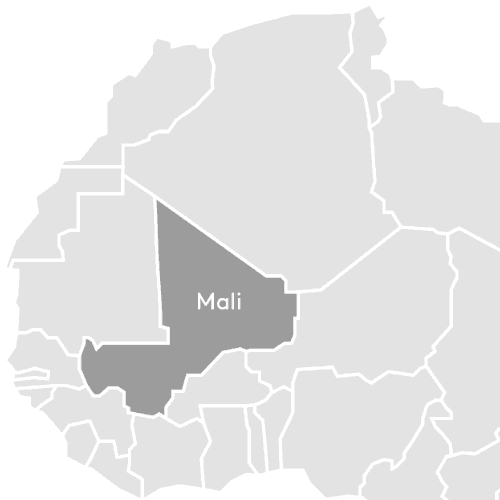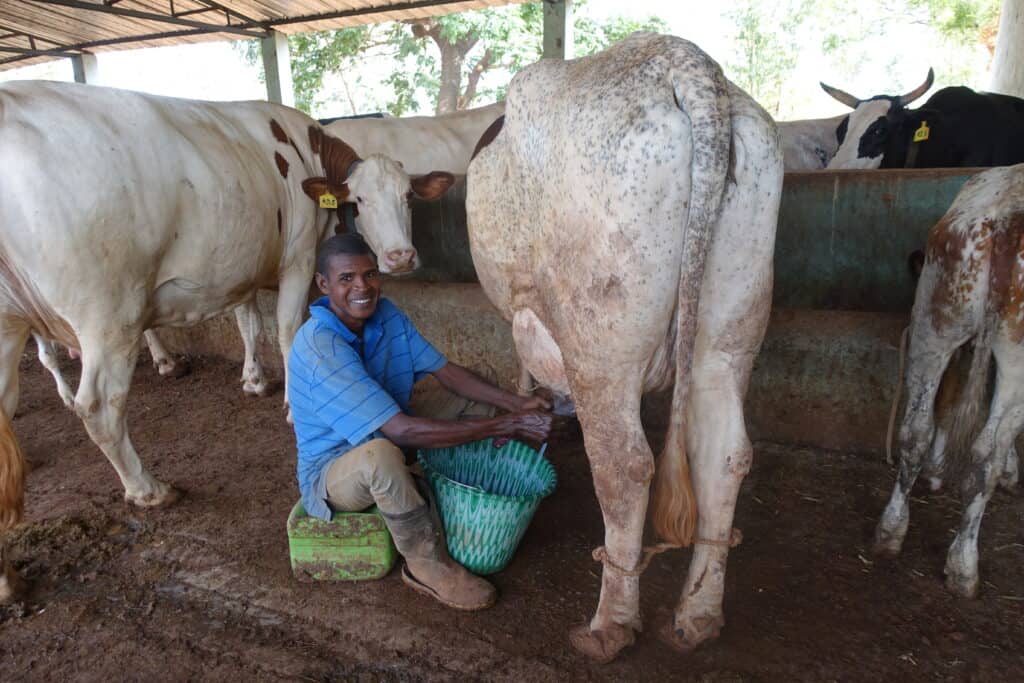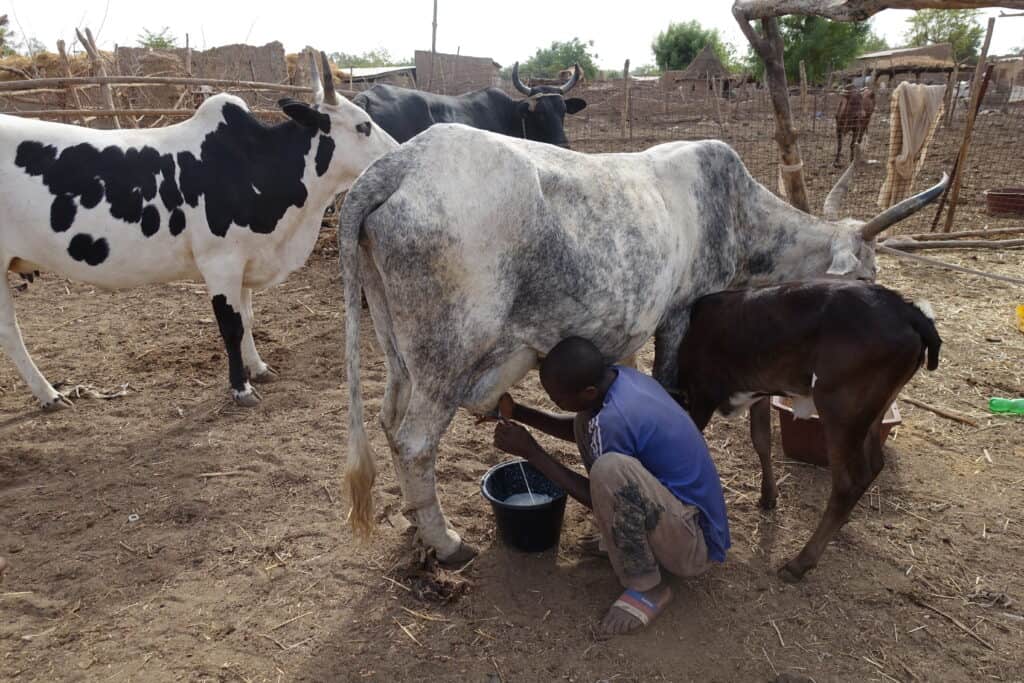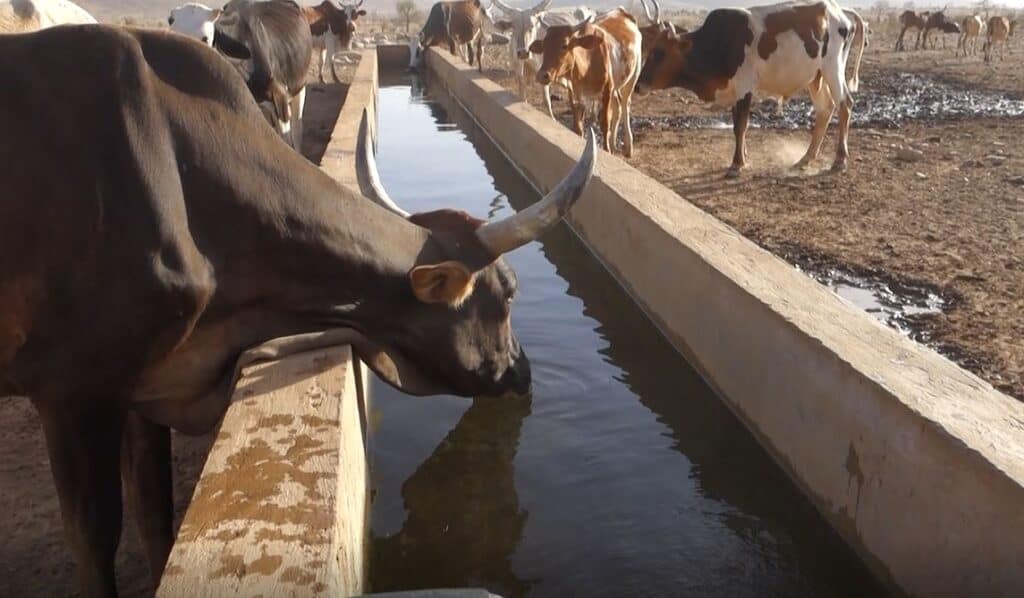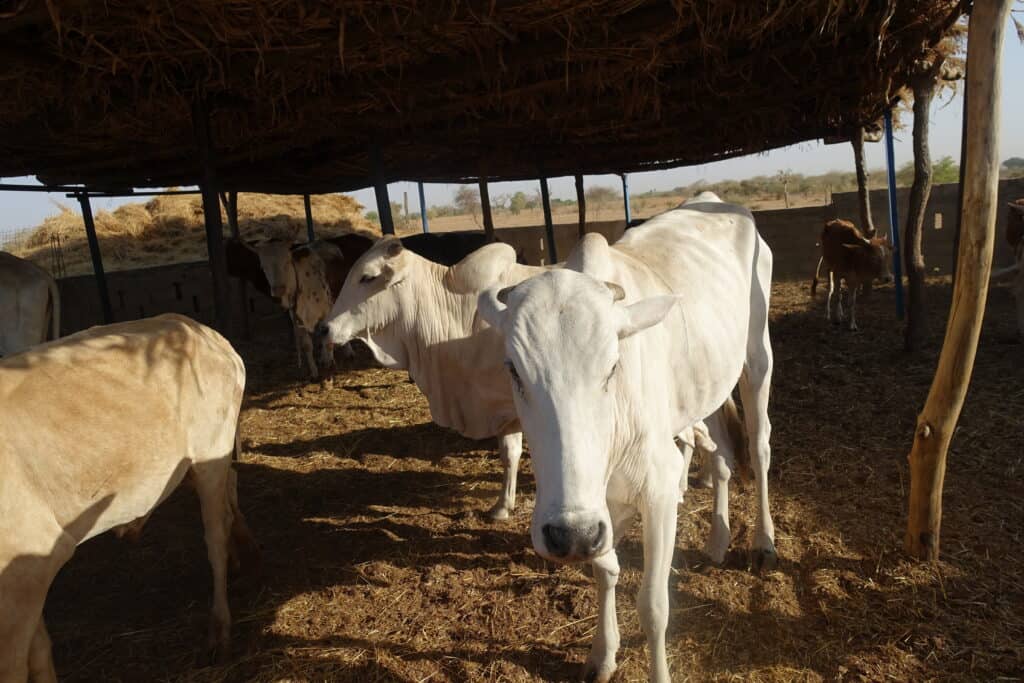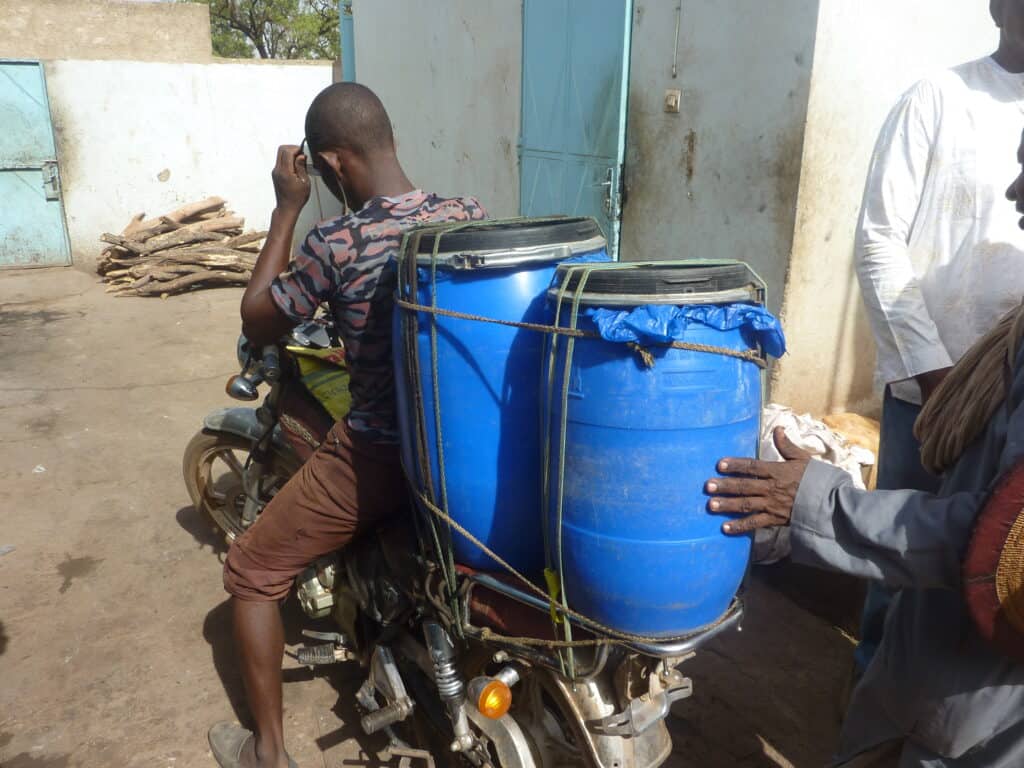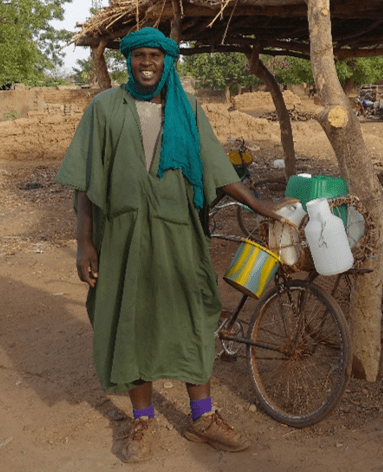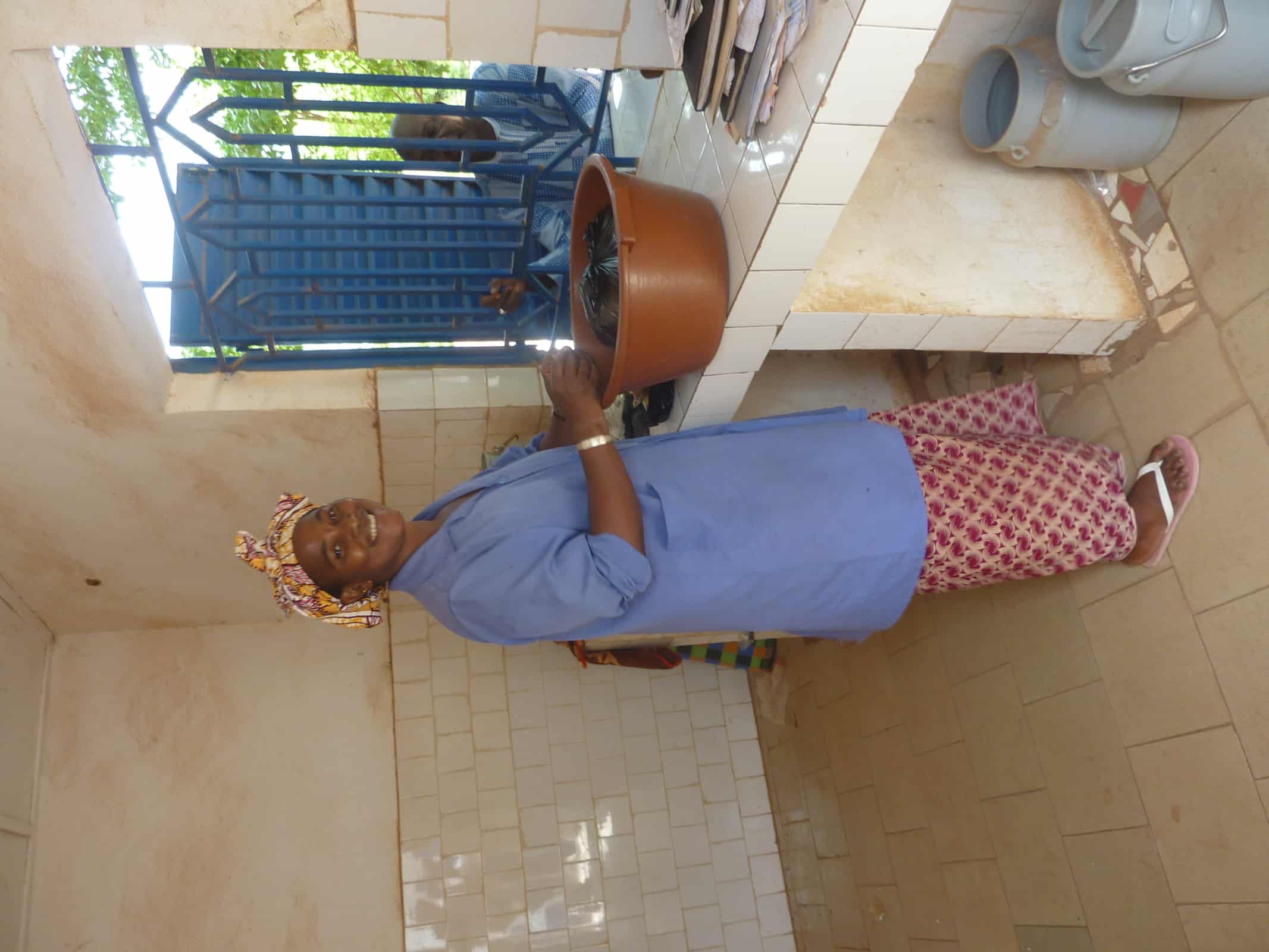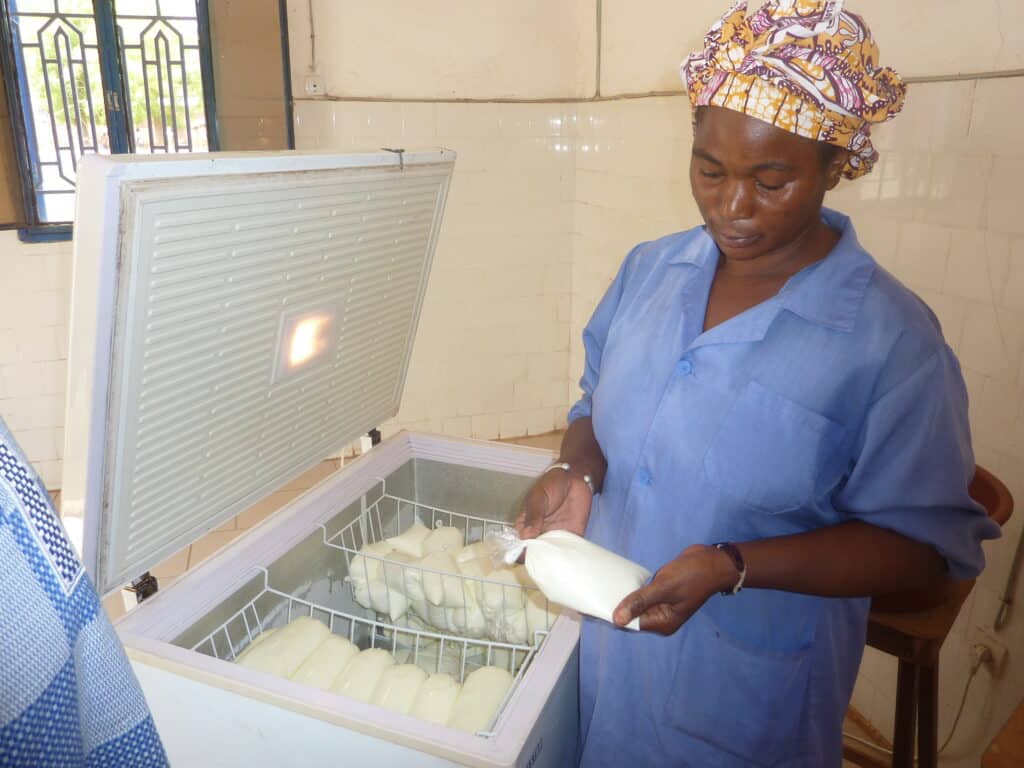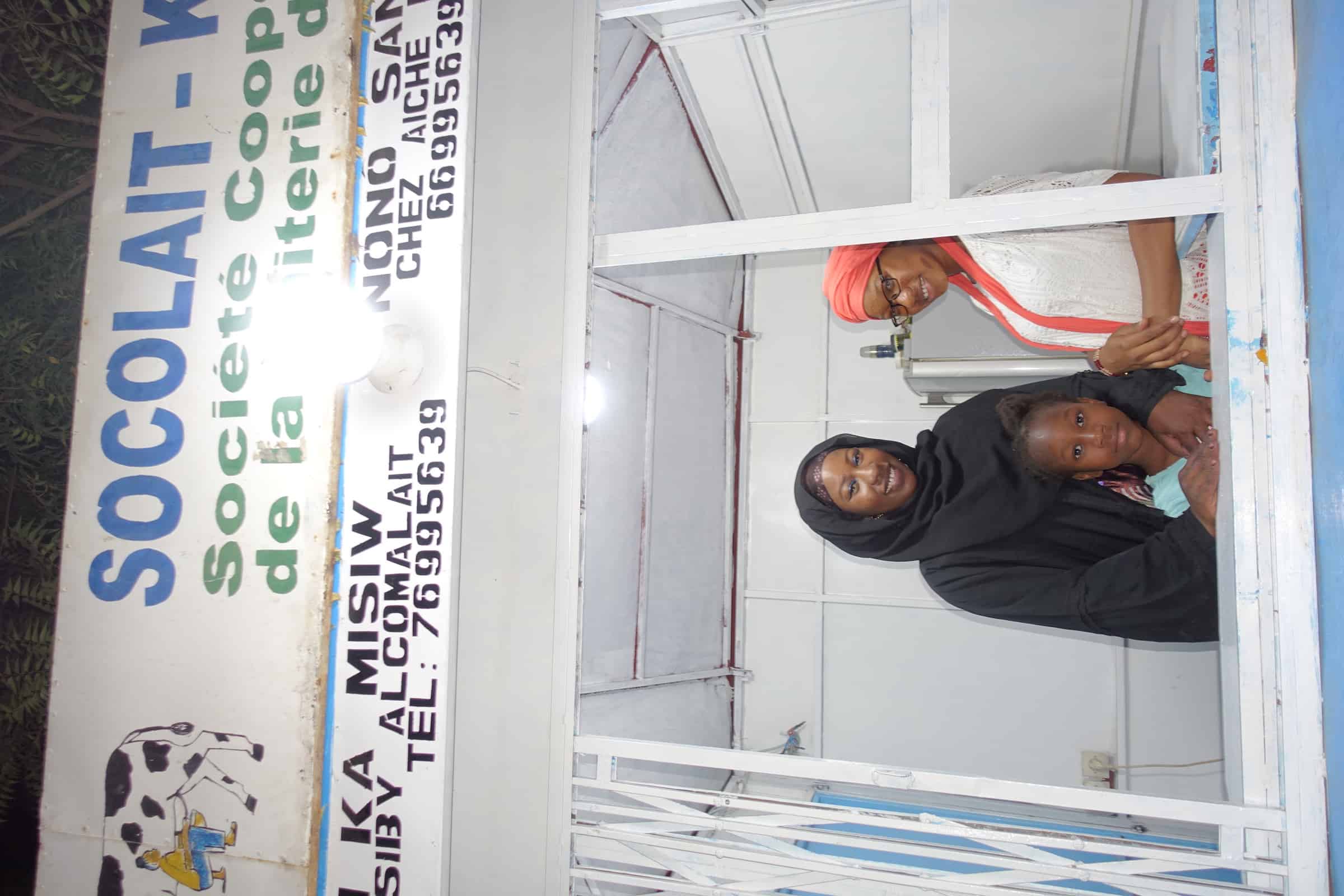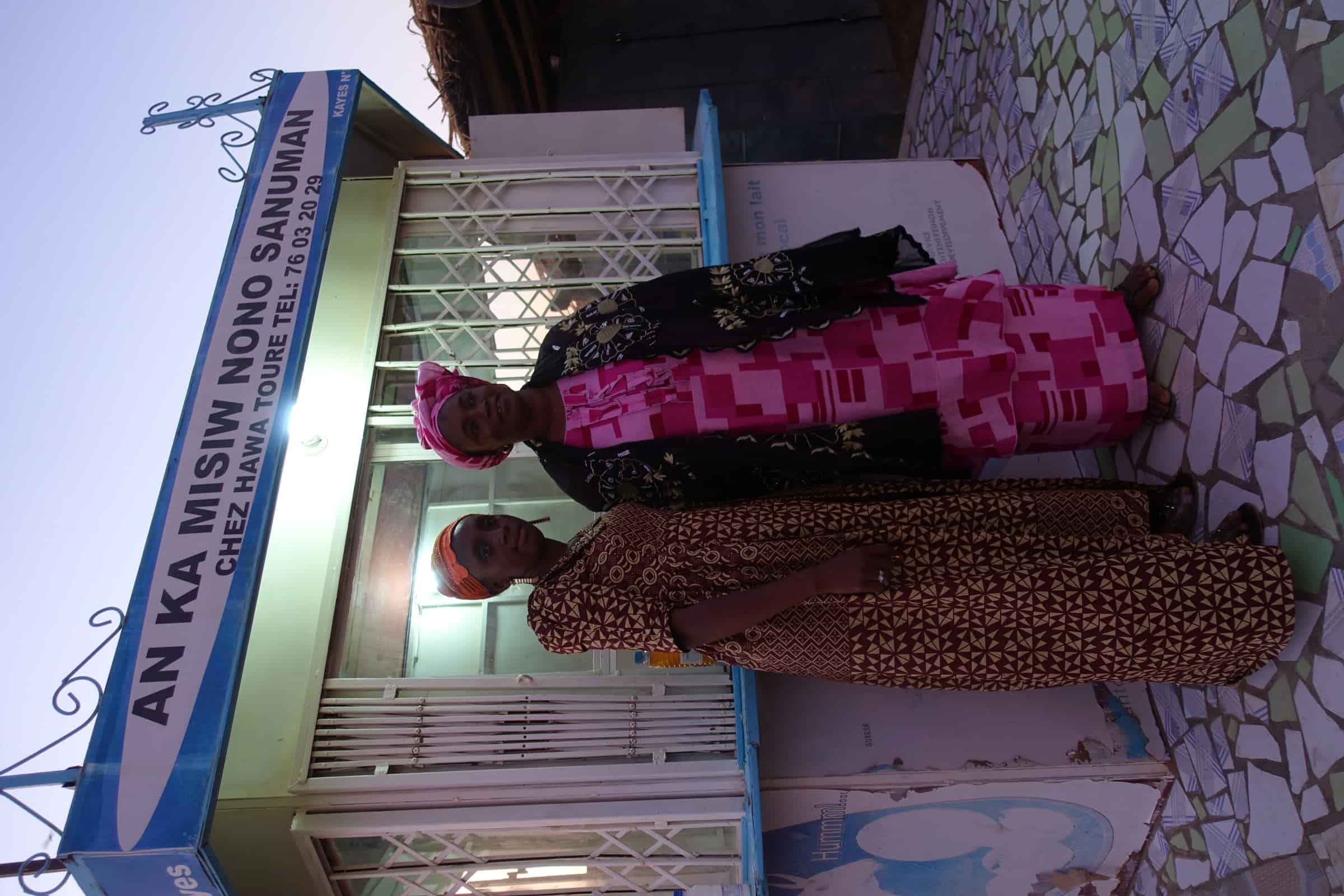Follow me on my visit in one of our projects in Mali!
Dear VSF supporter
My name is Christian Wirz and I am programme manager for West Africa at VSF-Suisse. In April this year I visited our milk value chain- project in Mali. Today I would like to tell you about it. I am very pleased to share these impressions from our work with you.
Although Mali has one of the largest livestock populations in West Africa with 10 million cattle and 16 million goats and sheep, 90% of the dairy products consumed in the country are imported. That’s 5,000 tons of milk powder a year – that’s 40 million litres of milk! The sustainable intensification of Mali’s livestock farming faces many challenges, among other reasons due to the low productivity of farm animals and the fact that the organisation of those involved has not yet been optimised.
VSF-Suisse has been supporting the local milk value chain for fifteen years. We connect livestock farmers with markets through various milk collection points, mini dairies and 88 milk sale points in the greater Bamako area and in the west of the country. We have thus succeeded in maintaining or creating over 2,000 jobs. These are for example breeders, milk collectors, milk processors or milk sellers.
Through our projects we have also been able to increase milk production by, for example, optimising breeding methods, feeding more species-appropriate feed and crossing dairy breeds with local zebus. Whereas a locally bred cattle used to produce only 0.5 to 1.5 litres of milk per day, today it is 7 to 9 litres of milk per day! A success, which we are very happy about and which would not have been possible without the local partners, but also without the support of people like you.
Come with me! I’ll show you how milk is being produced in Mali!
Warm regards
Your Christian
Christian Wirz is responsible for the VSF-Suisse projects in West Africa. He puts his heart and soul into helping the people on the ground.
VSF-Suisse has been successfully implementing projects in the milk value chain for years, be it a camel milk project in Kenyaor a cow’s milk project like here in Mali.
The aim of my visit was, on the one hand, to give colleagues from Kenya, Ethiopia and Togo impressions of the Mali project and, on the other hand, to create an exchange through which our work in the dairy sector can be further developed.
Other milk projects have either already started (for example, with a pilot project in Ivory Coast) or are being planned (in Ethiopia and Togo), so that the valuable experience we have gained over the years enables us to constantly improve our work.
A first discussion
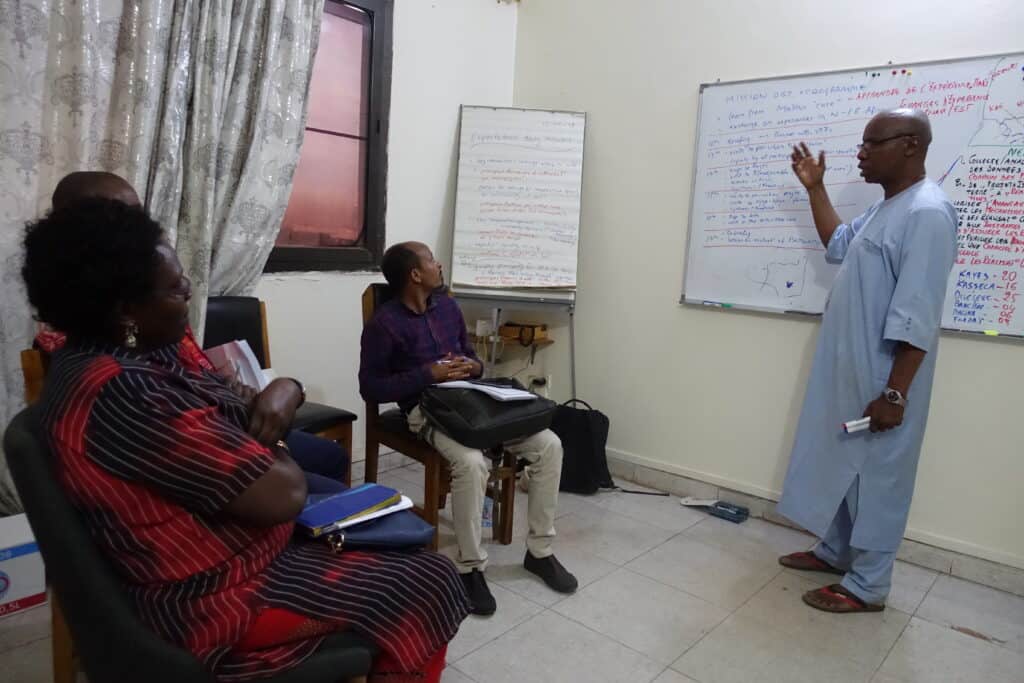
Our colleague Genevieve Owuor from Kenya and Wesinew Adugna from Ethiopia will also participate in the meeting. On the right, the VSF-Suisse Country Director for Mali, Abdoulaye Diaouré.
After my arrival we will define the goals of our visit. Questions such as “Where do we have to start?”, “How can we cooperate with other organisations?” and “How can the dairy sector be built up in a sustainable way?” are questions we try to answer together.
On the road to the milk farmers
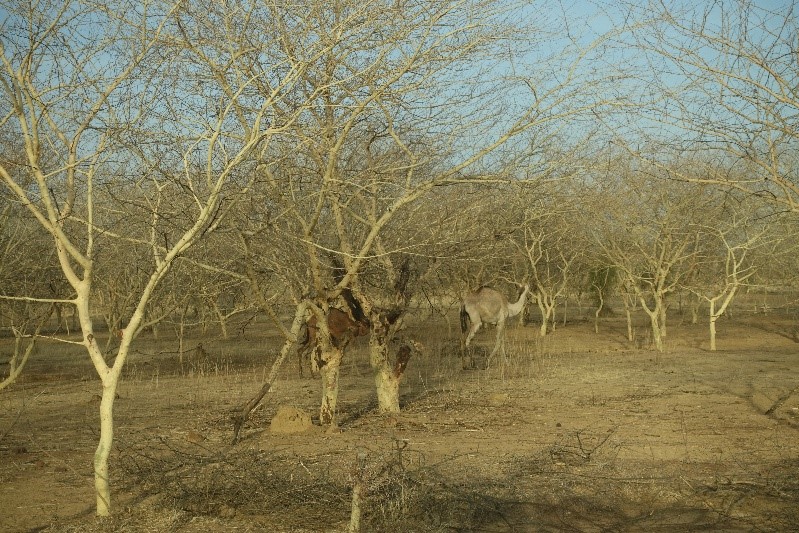
The roads in the country often lead through barren landscapes, which are characterized by drought and aridity
On the first day we visit four farms in the vicinity of Bamako, which are supported by VSF-Suisse.
Since a part of Mali is located in the Sahel zone, i.e. in the transition area between semi-desert and dry desert and dry savannah, pictures like the above are not uncommon. Further and extreme periods of drought, exacerbated by climate change, will cause this zone to spread, with fatal consequences for nature, people and the environment.
Drought cycles are increasingly becoming an issue in the VSF-Suisse projects, also in West Africa: Projects are currently being planned to better prepare livestock farmers for the drought, e.g. through targeted reduction of herds before the onset of the drought
Visits on farms
Our first stop is at this farm. In the process, I gain valuable insights into the daily work of the livestock farmers. I am very pleased – through more species-appropriate husbandry, animal welfare has improved noticeably in recent years!
In addition, a livestock breeding centre has been established in the village, which is taking various measures to ensure animal welfare.The latest project success is the dug borehole that supplies the well in the picture above. This gives the cattle access to urgently needed water, and the cooperative generates additional income, as the village population can also obtain drinking water for a small fee. That’s huge progress!
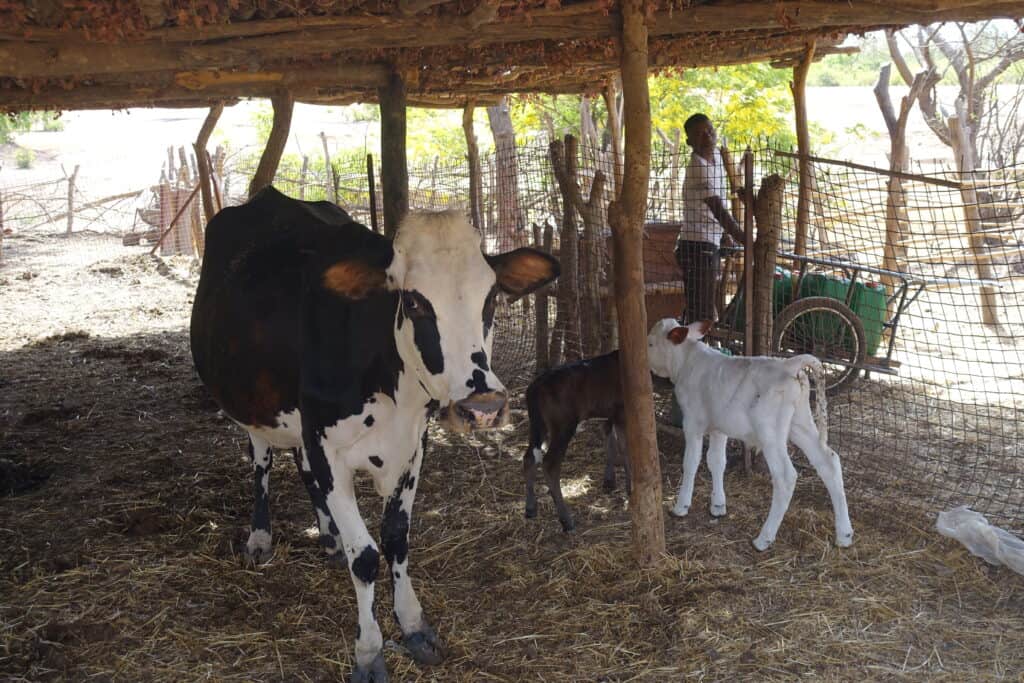
When we visit another farm, our impression is more confirmed: The animals are much better off here too, among other things due to the provision of straw and regular access to water, as well as more hygienic husbandry.
Healthy animals, healthy people, healthy environment – our commitment in Mali pays off!
Collecting milk
The transport often takes place with a motorbike or a bicycle
In the next village we visit, the freshly milked milk is collected and from there it is taken to a collection centre in the small dairy for further processing.
Milk heating
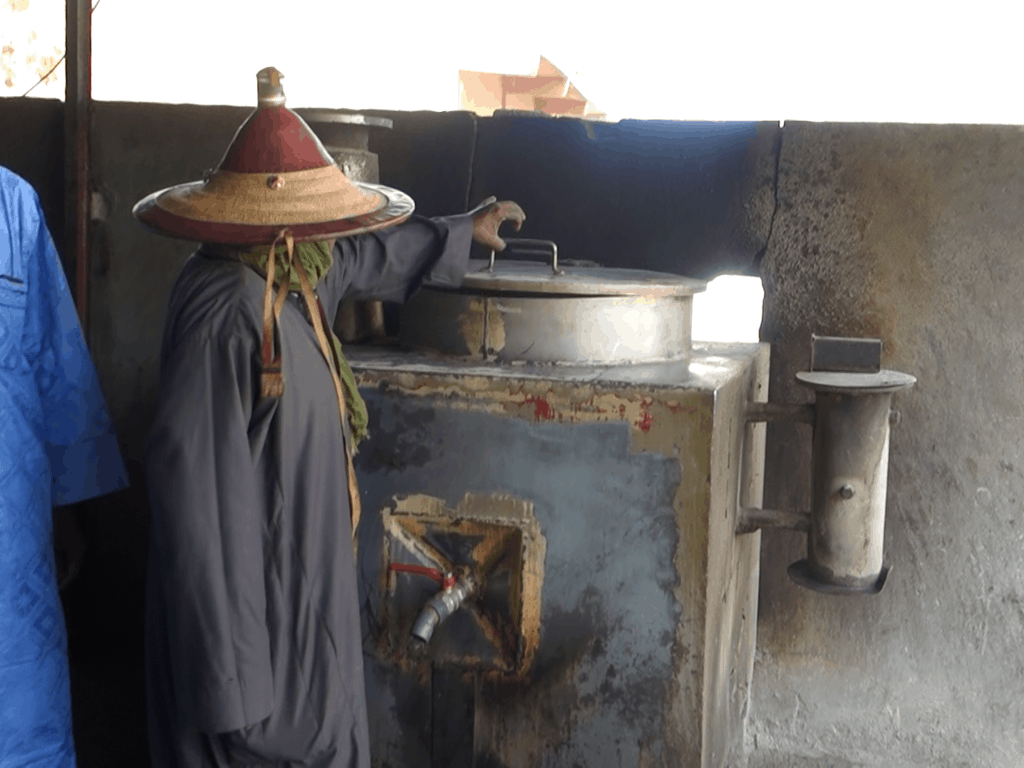
In the small dairy the milk is heated to 85 degrees. This ensures that the milk is free of possible microorganisms and germs as well as pathogens and that nothing can stand in the way of consumption.
Further processing
Pre-packaged and ready for consumption, the milk finds its way to one of our milk distribution points.
Sales
Women milk sellers in front of their “milk kiosks”
As the activities of the project also generate jobs for women, they are given an important role in the value chain, making the project a valuable contribution to reducing social inequality between sex.
In addition, a significant part of the processing, and thus the added value, takes place in the production of yoghurts, sour milk or liquid butter (“ghee”). This creates significant margins.
Consume
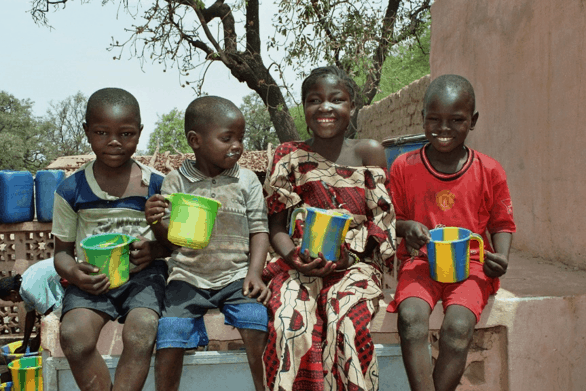
A complete success – even the little ones like our milk
My journey is coming to an end
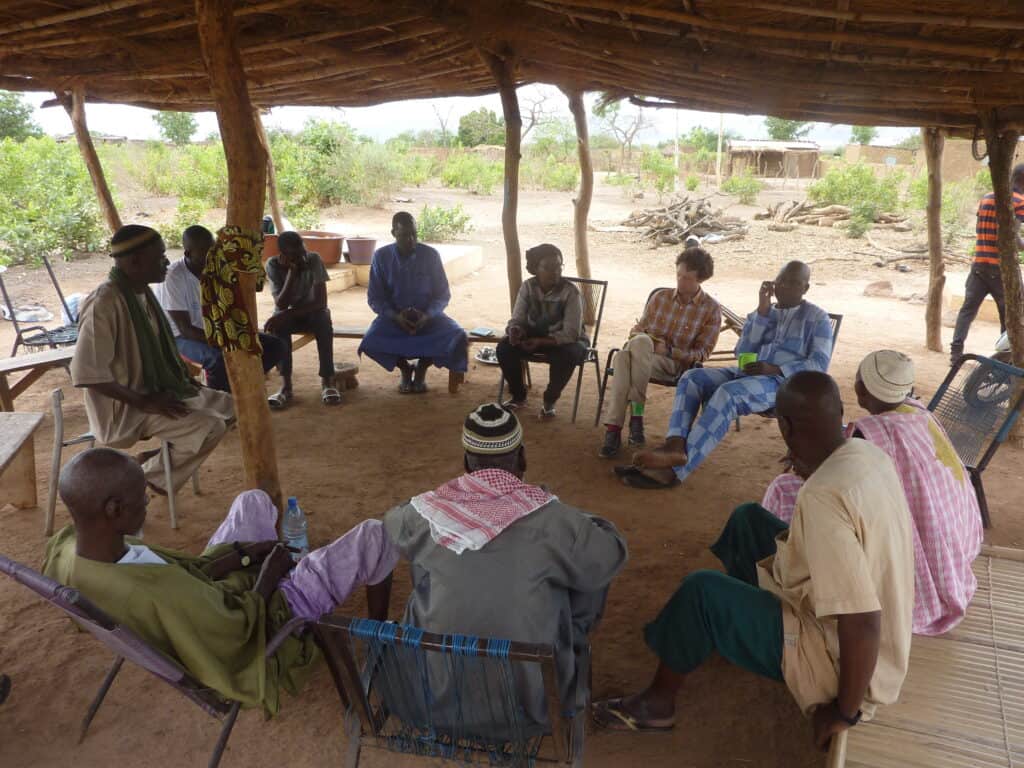
Numerous impressions and thoughts are discussed at the last session before I go back to Bern.
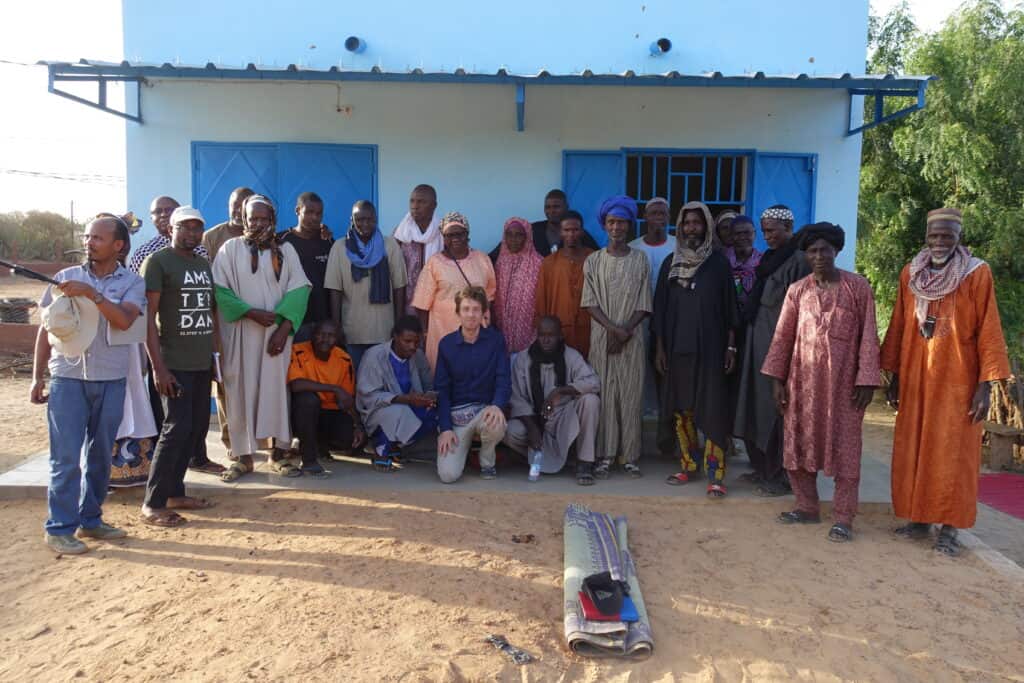
I hope that I was able to give you an insight into our everyday life with this report. Please let us know at any time if we can help with additional information!
Thank you for supporting VSF-Suisse and making our work for people and animals possible.
Warm regards, Christian Wirz

